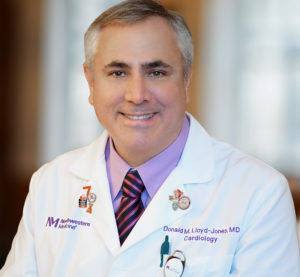
Epigenetic aging — derived from the molecular mechanisms governing gene regulation — could serve as a promising biomarker for measuring long-term cardiovascular health and disease risk, according to a Northwestern Medicine study published in the journal Circulation Research.
Epigenetic aging represents a novel measure of biological age — or how old the body is physiologically, independent of chronological age — with potential significance for age-related chronic diseases. In terms of cardiovascular health and disease specifically, identifying the molecular mechanisms that promote cardiovascular disease risk factors could improve targeted therapies, disease detection and prevention efforts for patients, according to the authors.
“This is the information patients are often interested in: that their biological age is actually going faster than their chronological age. The biological age is the miles, the chronological age is the years, and you want to minimize the miles and maximize the years,” said Donald Lloyd-Jones, MD, ScM, the Eileen M. Foell Professor, chair of Department of Preventive Medicine and co-senior author of the study.
To identify associations between epigenetic aging acceleration and cardiovascular health, the investigators analyzed epigenetic screening data from more than 3,000 participants enrolled in The Coronary Artery Risk Development in Young Adults (CARDIA) study and the Framingham Heart Study, both longitudinal, population-based studies examining cardiovascular disease and risk.
Using this data, the team identified associations between participants’ cardiovascular health scores and their GrimAge acceleration, a measure of the difference between one’s biological age and one’s chronological age at a given time. Participants’ cardiovascular health was measured using their scores from the American Heart Association’s “Life’s Simple 7”, which measures cardiovascular health based on seven risk factors (diet, smoking status, physical activity, BMI, blood pressure, cholesterol and blood glucose) and their clinical cardiovascular health scores, a sub-score measuring BMI, blood pressure, cholesterol and blood glucose.

“CARDIA is ideal here because we met these people when they were as young as age 18 and we followed them now for up to 35 years. By being able to integrate their early life information and link it to midlife GrimAge, we can start to understand some of the mechanisms by which we age biologically or molecularly,” said Lloyd-Jones, who is principal investigator of CARDIA’s Chicago field center at Northwestern Memorial Hospital.
From the data, the investigators found that for every point higher in cardiovascular health a participant had, their biological age was 0.67 years, or about eight months, younger than their chronological age — demonstrating that their biological age was accelerating more slowly over time than their chronological age.
“We hypothesized that this association would be there, but the magnitude of the association was certainly much bigger than we would ever have anticipated,” said Lloyd-Jones.
The findings demonstrate that faster GrimAge acceleration is associated with loss of cardiovascular health from as early as young adulthood, highlighting the role of epigenetic mechanisms in linking age-related cardiovascular health loss and cardiovascular disease.
“These are the kinds of markers that can theoretically capture health effects from a very wide variety of sources that just the simple seven markers. There’s a whole ream of research on social determinants of health that we’re just barely scratching the surface with,” said Brian Joyce, PhD, research assistant professor of Preventive Medicine and lead author of the study.
Lifang Hou, MD, PhD, chief of Cancer Epidemiology and Prevention in the Department of Preventive Medicine, was co-senior author of the study. Coauthors include Tao Gao, MD, research assistant professor of Preventive Medicine in the Division of Cancer Epidemiology and Prevention; Yinan Zheng, ’17 PhD, research assistant professor of Preventive Medicine in the Division of Cancer Epidemiology and Prevention; Norrina Allen, PhD, Associate Professor of Preventive Medicine in the Division of Epidemiology and of Pediatrics; Hongyan Ning, MS, Research Assistant Professor of Preventive Medicine in the Division of Biostatistics; Kiang Liu, PhD, professor emeritus of Preventive Medicine in the Division of Epidemiology; and Philip Greenland, MD, the Harry W. Dingman Professor of Cardiology.
This work was supported by American Heart Association grants 17SFRN33700278, 14SFRN20790000 and R21 AG063370, and the American Heart Association Career Development Award 19CDA34630050.






